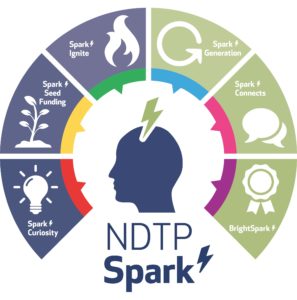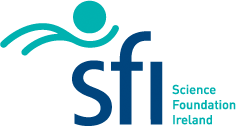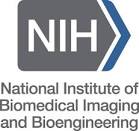Please read below for a description of the current Colo-rectal projects
************************************************************************************
![]() COLOSSUS is an EU-funded H2020 project that aims to provide new and more effective ways to classify patients with a specific type of colorectal cancer (microsatellite stable RAS mutant metastatic colorectal cancer or MSS RAS mt mCRC) and to develop better treatments for them. Our ultimate goal is to deliver a personalised medicine approach for patients with MSS RAS mt mCRC that is currently not available.
COLOSSUS is an EU-funded H2020 project that aims to provide new and more effective ways to classify patients with a specific type of colorectal cancer (microsatellite stable RAS mutant metastatic colorectal cancer or MSS RAS mt mCRC) and to develop better treatments for them. Our ultimate goal is to deliver a personalised medicine approach for patients with MSS RAS mt mCRC that is currently not available.
The COLOSSUS team is composed of cancer researchers and clinicians from across Europe.
Click here for more information
PI’s Prof. Annette Byrne –
Prof. Jochen Prehn–
************************************************************************************


Project Title: An exploration of the genetic basis, cellular mechanisms and potential avenues to overcome the radioresistance of mucinous rectal adenocarcinoma.
Research on this project will be focused on determining the genomic landscape of mucinous rectal cancer. One of the main overall goals is to determine if there are different driver mutations in mucinous rectal cancer when compared to non-mucinous rectal cancer that may account for this histological subtype’s relative resistance to neo-adjuvant chemoradiotherapy and worse long term outcomes. We will use targeted gene sequencing as well as whole genome sequencing to try and answer the above questions. This project will be undertaken CSM under the supervision of Prof. Jochen Prehn and involves collaboration with The Department of Molecular and Cellular Therapeutics, RCSI and The Departments of Pathology and Colorectal Surgery in Beaumont Hospital.
PI’s : Prof Jochen Prehn and Colorectal Surgeon ( Mr. John Burke)
************************************************************************

ColoForetell
A Xenopatient Discovery Platform for the integrated Systems based Identification of Predictive Biomarkers for Targeted Therapies in Metastatic Colorectal Cancer
Colorectal cancer is the second leading cause of cancer-related deaths in the developed world. Regorafenib, a newly approved tyrosine kinase inhibitor is active in metastatic colorectal cancer (mCRC) patients for whom no other treatment options exist. Nevertheless, as not all patients respond to treatment, the elucidation of a patient subset most likely to derive clinical benefit is of high priority. Herein, a state of the art mCRC Patient Derived Xenograft (PDX) discovery platform will be established to enable the systematic interrogation of predictive ‘omic and imaging markers of intrinsic resistance. The effect of Regorafenib in a cohort of metastatic mCRC PDX models will be characterized using imaging and immunohistochemistry. An integrated whole exome sequencing /Reverse Phase Protein Array strategy will identify putative biomarker signatures & interrogate cellular signaling pathways using statistics and systems pathway analyses. Functional Magnetic Resonance Imaging will be assessed in novel orthotopic PDX models as a possible predictive imaging response marker. Demonstration that mCRC PDX models may be used as a robust tool in integrative biomarker discovery studies may have a significant impact on future biomarker discovery approaches. ColoForetell has identified the discovery & verification of predictive pharmaco-‘omic & imaging biomarker methods for Regorafenib as a primary goal.
Partners
The Coloforetell team is composed of cancer researchers and clinicians from across Europe.
PI’s Prof. Annette Byrne , Prof Jochen Prehn, Dr Bryan Hennessy, Prof. Diether Lambrechts , Prof. Livio Trusolino –
Tripartite award as part of Global Project to Tackle Colorectal Cancer
Using Cell DIVE, the state-of-the-art technology developed by GE Healthcare, the RCSI Centre for Systems Medicine in collaboration with Prof Deborah McNamara and Prof Elaine Kay from the Departments of Surgery and Pathology at RCSI and Beaumont Hospital and cancer researchers at Queen’s University will comprehensively characterise the gene and protein interactions inside colorectal cancer cells and use this information to select or stratify patients for particular therapeutic interventions.
The Cell DIVE technology that we have developed allows the examination of tumour tissue samples at a level of detail that has not been possible before. Examining multiple proteins and different cell types in a single tissue sample allows us to define more clearly the biology that drives individual tumours. We are delighted to be working with researchers on the island of Ireland to apply this technology and know it will positively influence patient care.”
Colorectal cancer is the third most common cancer worldwide and it is predicted that the number of cases will rise to 2.4 million diagnosed per year by 2035. There are a number of treatment options available to colorectal cancer patients and a patient’s response to treatment will depend on the specific type or makeup of their cancer. As a ‘one-size-fits-all’ treatment approach does not work for all patients, a more precise understanding of what happens inside colorectal cancer cells is required. This study will involve the examination of thousands of tumour samples in a bid to develop a diagnostic test that will enable more precise treatment plans for individual patients.
Professor Mark Lawler, Chair in Translational Genomics at Queen’s University explains: “Inside the colorectal cancer cell is like a massive series of circuits that are switched on all the time but different subsets of patients have differences in their circuitry. The Cell DIVE technology allows us to take multiple snapshots inside the colorectal cancer cell, defining a particular signature that identifies the patient’s molecular subtype. This will allow us to match the right patient to the right treatment.”
The research could also lead to improvements in treatment for colorectal cancer, namely immunotherapy, a powerful new approach that has shown to be effective in treating a number of other cancers.
The project is funded by the US National Institutes of Health, Science Foundation Ireland/Health Research Board and the Health and Social Care Research and Development (HSC R&D) Division of the Public Health Agency Northern Ireland/Medical Research Council.
http://pure.qub.ac.uk/portal/en/persons/mark-lawler(d3b76127-c18e-4bf7-8c5a-28151aef2de8).html
see also the link on Dr. Ginty’s Technology
PI’s Jochen Prehn , Dr Fiona Ginty, Prof Mark Lawlor , Prof. Daniel Longley
************************************************************************************


OxyUC
The impact of hypoxia on inflammation and tumorigenesis in ulcerative colitis
We here explore whether patients with an inflammatory condition of their bowel have an increased risk of developing bowel cancer, and whether the changes in inflammatory diseases are common to all bowel cancers, or only to specific types of bowel cancer. This is important, as we know that patients with inflammation often have insufficient oxygen in their tissues, and that we can ameliorate disease progression with a new generation of drugs that interfere in this process. If we find that bowel cancer have similar defects, we may be able to treat these cancer patients with these novel drugs.
Ulcerative colitis (UC) is a debilitating intestinal inflammatory disorder affecting approximately 1:200 people, the prevalence of which is disproportionately
high in Europe. As well as experiencing severe clinical symptoms, 10-18% of UC
patients develop inflammation-associated colon cancer. The molecular mechanisms
underpinning both the pathology and increased risk of cancer in UC patients remain
unclear and effective treatment is a clearly defined clinical need. It recently became
clear that the microenvironment in UC significantly impacts inflammation and tumor
progression via the promotion of immune, angiogenic and metabolic processes. We
will test the hypothesis that the microenvironment (specifically tissue hypoxia) is a key
determinant of mucosal inflammation and the risk of developing colon cancer in UC
patients. Hypoxia is a feature of the intestinal mucosa during UC. Hydroxylases are
oxygen-sensing enzymes which control the transcriptional response to hypoxia
through regulating the hypoxia-inducible factor (HIF).
Our previous work using a systems biology approach, informed by iterative mathematical modeling and biological experimentation implicated the HIF pathway as a key signaling hub during chronic inflammation. Based on this, we hypothesize that the degree and duration of mucosal hypoxia experienced by UC patients is a key driver of disease progression. In this proof of concept study for systems medicine, we will use pre-clinical and clinical approaches integrated with computational biology and previously generated mathematical models informed by clinical measurements to investigate the relationship between tissue hypoxia / HIF activation and inflammation / tumor development in UC patients. The successful completion of this programme will allow us to promote personalized prevention, diagnostics and treatment regimens for UC patients based on an
understanding of the individual micro-environmental features of their disease.
PI’s this project : Jochen Prehn, Martin Schneider (University Hospital Heidelberg), Massimiliano Mazzone (University of Leuven), Cormac Taylor ( UCD)
Partners of the ERACoSysMed consortium
ERACoSysMed was initiated by the following 14 national funding bodies:
- Austrian Science Fund (FWF), Austria
- Fund for Scientific Research (FNRS), Belgium
- Research Foundation – Flanders (FWO), Belgium
- French National Research Agency (ANR), France
- Federal Ministry of Education and Research (BMBF), Germany
- Science Foundation Ireland (SFI), Ireland
- Chief Scientist Office of Israeli Ministry of Health (CSO-MOH), Israel
- Ministry of Health (MOH), Italy
- National Research Fund (FNR), Luxembourg
- The Netherlands Organisation for Health Research and Development (ZonMw), The Netherlands
- Research Council of Norway (RCN), Norway
- Slovak Academy of Sciences (SAS), Slovakia
- Ministry of Education, Science and Sport (MIZS), Slovenia
- Institute of Health Carlos III (ISCIII), Spain
For mor einformation please see https://www.eracosysmed.eu/home
*******************************************************************************



